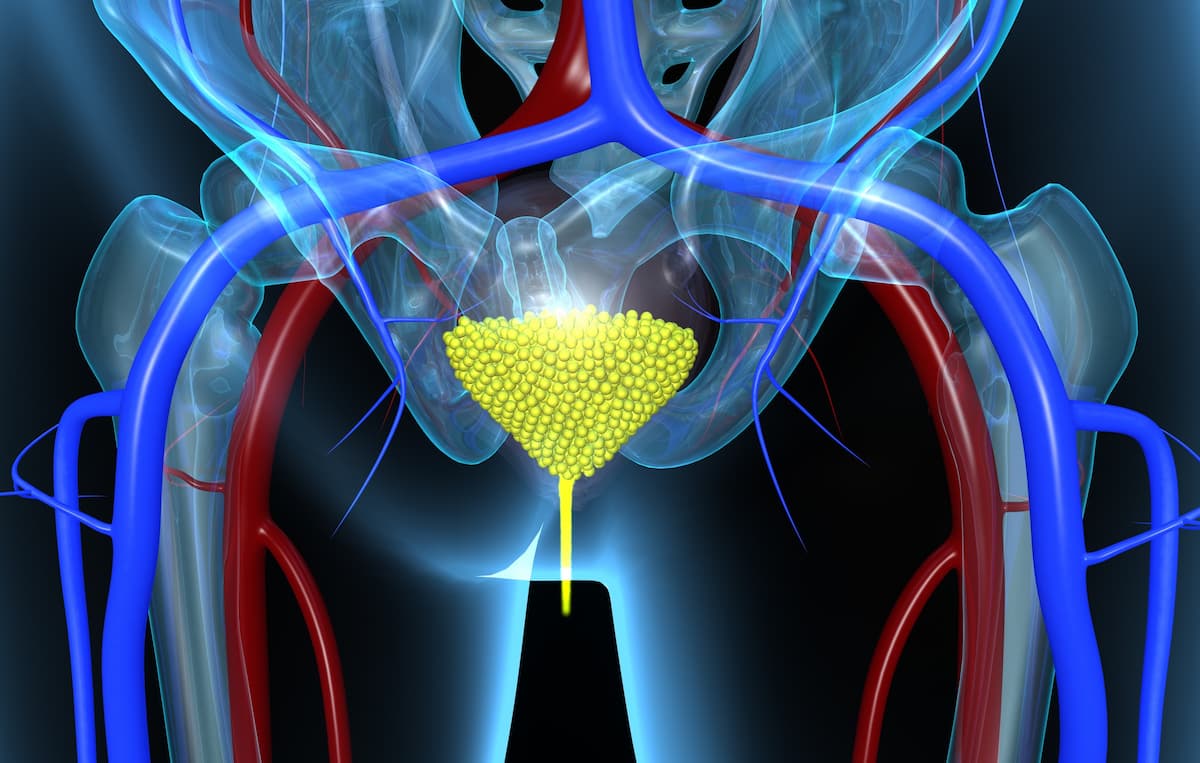Enfortumab Vedotin Combo Earns Japanese Approval for Urothelial Carcinoma
Phase 3 EV-302 results supported the approval, showing a statically significant survival benefit compared with chemotherapy in urothelial carcinoma.
Phase 3 EV-302 results supported the approval, showing a statically significant survival benefit compared with chemotherapy in urothelial carcinoma.

Japan’s Ministry of Health, Labour, and Welfare (MHLW) has approved enfortumab vedotin-ejfv (Padcev) in combination with pembrolizumab (Keytruda) as a first-line treatment for adults with radically unresectable urothelial carcinoma, according to a press release from the drug’s developers, Astellas Pharma Inc.1
Results from the phase 3 EV-302/KEYNOTE-A39 trial (NCT04223856), which were published in the New England Journal of Medicine, supported the approval. The efficacy and safety of the combination therapy was evaluated against platinum-containing chemotherapy with cisplatin or carboplatin plus gemcitabine in patients with previously untreated locally advanced or metastatic urothelial carcinoma.2
The study data revealed a progression free-survival (PFS) benefit of 12.5 months (95% CI, 10.4-16.6) with the enfortumab vedotin combination therapy vs 6.3 months (95% CI, 6.2-6.5) with chemotherapy (HR, 0.45; 95% CI, 0.38-0.54; P < .001). Additionally, an overall survival (OS) benefit was reported at 31.5 months (95% CI, 25.4-not reached [NR]) with enfortumab vedotin plus pembrolizumab vs 16.1 months (95% CI, 13.9-18.3) with platinum-containing chemotherapy plus gemcitabine (HR, 0.47; 95% CI, 0.38-0.58; P < .001).
"Today's approval by Japan's MHLW expands the benefits of treatment with enfortumab vedotin in combination with pembrolizumab to patients living with radically unresectable urothelial carcinoma in Japan,” Ahsan Arozullah, MD, MPH, senior vice president and head of Oncology Development at Astellas, said in the press release.1 “These patients will now have an alternative to platinum-containing chemotherapy to treat this devastating disease, helping to improve patient outcomes, extend lives, and give further hope to the patients and families that we serve."
Based on the phase 3 EV-302 findings, the FDA approved the combination of enfortumab vedotin plus pembrolizumab for use in this patient population in December 2023.3 Additionally, the combination therapy gained European approval as a treatment for unresectable or metastatic urothelial carcinoma in August 2024.4
Investigators of the international, open-label phase 3 EV-302 trial randomly assigned 866 patients 1:1 to receive either enfortumab vedotin in combination with pembrolizumab (n = 442) or platinum-based chemotherapy plus gemcitabine (n = 444). Patients assigned to the combination arm received 3-week cycles of intravenous enfortumab vedotin at 1.25 mg/kg on days 1 and 8 plus intravenous pembrolizumab at 200 mg on day 1, and patients in the chemotherapy arm received intravenous gemcitabine at 1000 mg/m2 plus intravenous cisplatin at 70 mg/m2 or carboplatin at area under the curve of 4.5 to 5 mg/mL/minute.
The dual primary end points for the study were PFS per RECIST v 1.1 criteria and OS. Secondary end points included overall response rate (ORR), duration of response (DOR), time to pain progression, and safety.
Additional findings included an ORR benefit in the combination therapy at 67.7% (95% CI, 63.1%-72.1%) vs 44.4% (95% CI, 39.7%-49.2%) in the chemotherapy arm (P <.001). Complete responses were reported in 29.1% and 12.5% of patients in each cohort, respectively.
Estimated 12-month OS rates were 78.2% (95% CI, 73.9%-81.9%) and 61.4% (95% CI, 56.6%-65.9%) in each cohort, respectively. Median DOR was NR in the combination therapy arm, with 67.3% and 59.6% having ongoing response rates at 12 and 18 months; median DOR was 7 months with chemotherapy, with 35.2% and 19.3% experiencing ongoing responses at 12 and 18 months, respectively.
Any-grade treatment-related adverse effects (TRAEs) were reported in 97.0% and 95.6% of the combination and chemotherapy cohorts. The grade 3 or higher TRAE rate was 55.9% and 69.5% in the respective arms. Dose reductions due to TRAEs occurred in 40.7% and 37.9% of each cohort, with 4 deaths in the combination therapy arm related to individual instances of multiple organ dysfunction syndrome, immune-mediated lung disease, diarrhea, and asthenia.
References
- Japan's Ministry of Health, Labour and Welfare approves PADCEV™ (enfortumab vedotin) with KEYTRUDA® (pembrolizumab) for first-line treatment of radically unresectable urothelial carcinoma. News release. Astellas Pharma Inc. September 24, 2024. Accessed September 24, 2024. https://tinyurl.com/yc6u53ub
- Powles T, Valderrama BP, Gupta S, et al. Enfortumab vedotin and pembrolizumab in untreated advanced urothelial cancer. N Engl J Med. 2024;390(10):875-888. doi:10.1056/NEJMoa2312117.
- FDA approves enfortumab vedotin-ejfv with pembrolizumab for locally advanced or metastatic urothelial cancer. News release. FDA. December 15, 2023. Accessed September 24, 2024. https://bit.ly/48ls9bi
- European Commission approves Astellas' PADCEV™ (enfortumab vedotin) in combination with KEYTRUDA® (pembrolizumab) for first-line treatment of advanced urothelial cancer. News Release. Astellas Pharma Inc. August 27, 2024. Accessed September 24, 2024. https://tinyurl.com/3e77bw2x